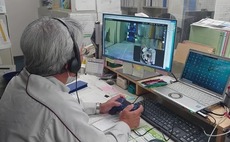
Covalent partial-exit marks end of an era
The name Toshiba Ceramics is firmly rooted in the golden age of Japanese private equity. In 2006, The Carlyle Group and Unison Capital bought the company from Toshiba Group for JPY91 billion ($774 million at the time) in what was one of the most expensive and most highly leveraged transactions of a period in which foreign buyout firms ran rampant. The leverage, which amounted to JPY65 billion, was provided by Royal Bank of Scotland, Mizuho Corporate and Sumitomo Mitsui Banking.
Now Carlyle and Unison are selling roughly half their stake in the company - which was renamed Covalent - to Taiwan-based solar wafer manufacturer Sino-American Silicon Products (SAS) for JPY35 billion ($455 million). As the last of the mid-2000s mega-deals to see a (partial) exit, to some it might feel like the end of an era.
Covalent has two major business units - silicon wafers and ceramics - and it is the former that is being sold to SAS. The silicon wafer business accounted for JPY40.9 billion of Covalent's JPY82.8 billion in sales for the fiscal year ended March. Operations are based in Niigata prefecture on the north-east part of Honshu Island and all staff and assets will be transferred to SAS by the end of the year.
Carlyle and Unison acquired approximately 92% of the company - split 50-50 - in 2006, including $509 million in debt. According to a Unison spokeswoman at Unison, there were no plans to break up the two business lines.
But industry sources tell AVCJ that the sale - at what appears to be a relatively low price - is no surprise. With the silicon wafer business generating returns of just 0.2%, it is suggested that Carlyle and Unison decided to get rid of the asset in order to focus on ceramics and improve the bottom line. Unison said it was committed to improving corporate value, but gave no further details on how this would be achieved.
Few, if any, of the 2006 mega-deals have delivered truly satisfactory returns. Skylark, a restaurant chain operator bought by Nomura Principal Finance and CVC Capital Partners for JPY256.5 billion - the year's leading high-leverage transaction - was sold in March to Bain Capital for around JPY280 billion, apparently barely covering the costs.
Advantage Partners ended up in court over its buyout of Rex Holdings, accused of unfair pricing. And Q'sai, a green juice maker bought by SMBC Ventures for JPY40 billion, ran into problems due to differences between owners and management over the exit strategy. The management team wanted the company to be sold to a buyer in its home region of Kyushu and in the end SMBC compromised, exiting to Kyushu-based Coca Cola West - though for a relatively uninspiring price of JPY35.9billion.
Latest News
Asian GPs slow implementation of ESG policies - survey
Asia-based private equity firms are assigning more dedicated resources to environment, social, and governance (ESG) programmes, but policy changes have slowed in the past 12 months, in part due to concerns raised internally and by LPs, according to a...
Singapore fintech start-up LXA gets $10m seed round
New Enterprise Associates (NEA) has led a USD 10m seed round for Singapore’s LXA, a financial technology start-up launched by a former Asia senior executive at The Blackstone Group.
India's InCred announces $60m round, claims unicorn status
Indian non-bank lender InCred Financial Services said it has received INR 5bn (USD 60m) at a valuation of at least USD 1bn from unnamed investors including “a global private equity fund.”
Insight leads $50m round for Australia's Roller
Insight Partners has led a USD 50m round for Australia’s Roller, a venue management software provider specializing in family fun parks.







